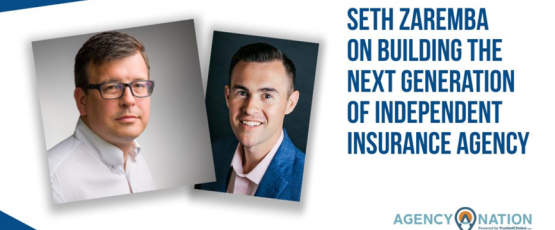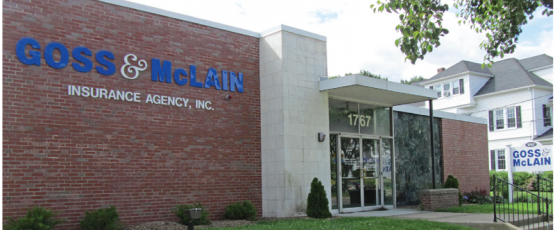
Written by Jacquelyn Connelley, IA Senior Editor, originally published by IA Magazine
The average age of independent agency principals with 20 percent or more ownership in their agencies is 55 years old, and 17 percent of them are 66 or older, according to the latest Future One Agency Universe Study.
It’s no secret that insurance is an old industry — and it’s getting older.
But while that’s a serious concern from a perpetuation standpoint, it’s also got a silver lining: The industry is full of veteran independent insurance agents who know a whole lot about how to run a successful business.
Why find a mentor?
For young agents and new agency owners who are eager to get their careers off on the right foot, finding a mentor is a surefire way to learn the ins and outs of a complicated business.
A mentorship relationship is about “the willingness to share knowledge,” says Daniel Mercure, Jr., fifth-generation owner of Mercure Insurance Agency, Inc. in Rockwood, Michigan, who was paired up with startup agency owner Janeth Ochoa as part of the Big “I” Right Start Training Series Mentorship Program.
“A lot of times, you don’t know what you don’t know — you don’t know what can be done better or what should be done better,” Mercure continues. “But a lot of people in this business have a wealth of great knowledge and have found a better way to do things. We need to start sharing it and getting it out there so somebody else can learn from it.”
A pilot project the Big “I” launched in fall 2017 that paired new independent agency owners with veteran agents and company representatives, the Right Start program is designed to help insurance professionals share insights about how to overcome the unique challenges of running an independent insurance agency.
3 tips to get you started
Whether you’re considering entering a formal mentorship program like this one or you’re scouting out potential mentors all on your own, here are three tips for leveraging your mentorship relationship to its full potential.
1. Hunt outside your own backyard
Mentees in the Right Start program were paired with out-of-state mentors — a factor most agree helped reduced some of the anxiety around swapping tips and tricks for success.
Working with someone outside your immediate territory helps ensure that “even if you do multistate business, the odds of having a competitive issue are slim,” Mercure says. “That gives you the ability to open up.”
Tim Breadon, who started The Breadon Group, LLC in Rockford, Michigan two years ago after spending a decade on the MGA side, agrees that knowing his mentor, Cindy Webster, runs her business down in Largo, Florida provided some peace of mind during their conversations.
“This way, it wasn’t like Cindy was providing a brand-new competitor all her best stuff to then turn around and go after her,” Breadon says. “And at the same time, I’m not talking about all my fresh new ideas to a well-entrenched agency that’s in my backyard. The distance helps buffer those concerns from a pure competition standpoint. It sets the foundation for having true, open and honest collaborative conversations.”
2. Find someone who brings something new to your table
Ochoa spent over a decade as an Allstate agent before purchasing her independent agency, The Golden Rooster, LLC in Gainesville, Georgia, from her friend and former boss.
She knew plenty about the insurance business in general—but what she didn’t know was the ins and outs of being an independent.
“Coming from the captive side, I had pretty much no idea how to operate an independent agency,” Ochoa says. “Even though I was my own boss at my Allstate agency, they were always guiding me, giving me all the marketing, this and that. Being independent, you’re really on your own. If you don’t have relationships like this one or you’re not involved with industry organizations, you’re just truly lost.”
Or perhaps you need advice on something more specific, like a particular line of business.
Mel Evans started his Knoxville, Tennessee-based agency InsureFit RM at the end of 2012 when former employer Sentry Insurance went through a major downsizing. Through his connection with Ron Brunell, third-generation principal at The Signature B&B Companies in Garden City, New York, Evans says he learned a lot about commercial lines in particular.
“My favorite part of the program was hearing Ron talk about his approach to a commercial account,” Evans says. “My experience is personal lines and I know that stuff like the back of my hand, so the level of care, concern and research he brings to selling and marketing a commercial account was very enlightening to me.”
Kori Sagen, owner of Sagen Insurance in Broadhead, Wisconsin, says the advice she got from her Right Start mentor, Jim Armitage of Arroyo Insurance in Arcadia, California, was invaluable on the topic of staffing.
For a while, Sagen’s staff consisted of herself and two employees who got along like family. Wary of disrupting the peace by throwing new people into the mix, Sagen finally decided to hire a producer and CSR to help her agency grow.
But shortly afterward, one of her new hires asked to take a two-month leave of absence. “That kind of request really affects your bottom line as a business owner,” says Sagen, who immediately called on Armitage for advice.
“I asked him, ‘Do I walk this guy out the door, or do I let him do this and work with him on it?’ He told me that a lot of times, the best producers can be tough to work with, because they have a free spirit and they’re driven,” Sagen recalls. “Having somebody to bounce those concerns off of instead of trying to figure it out for myself was so helpful. Two heads are always better than one.”
3. Don’t hold back
If you’re a young agent or a new agency owner, confessing all your crazy business ideas to a veteran agent may not sound like the most appealing way to gain respect as a fledgling professional.
But “you have to be open,” Breadon says. “You have to be willing to put yourself out there about what you’re doing. Even if you’re not sure you actually want to tell your mentor you’re thinking about doing X, just be honest so they can provide honest feedback.”
“Don’t be afraid,” Webster agrees. “It doesn’t matter if you’re on the mentee or mentor side—you can’t allow fear to prevent you from putting yourself out there, because you’re going to get so much out of the relationship either way. It’s a wealth of information that can be at your disposal whenever you need it. It’s nothing but a win-win.”






